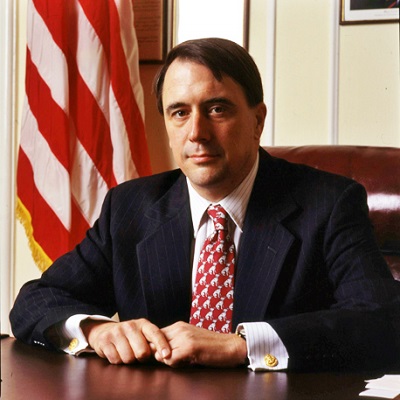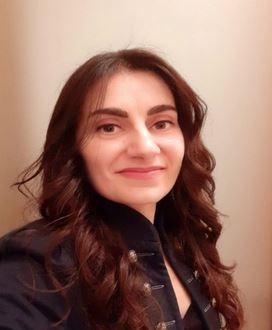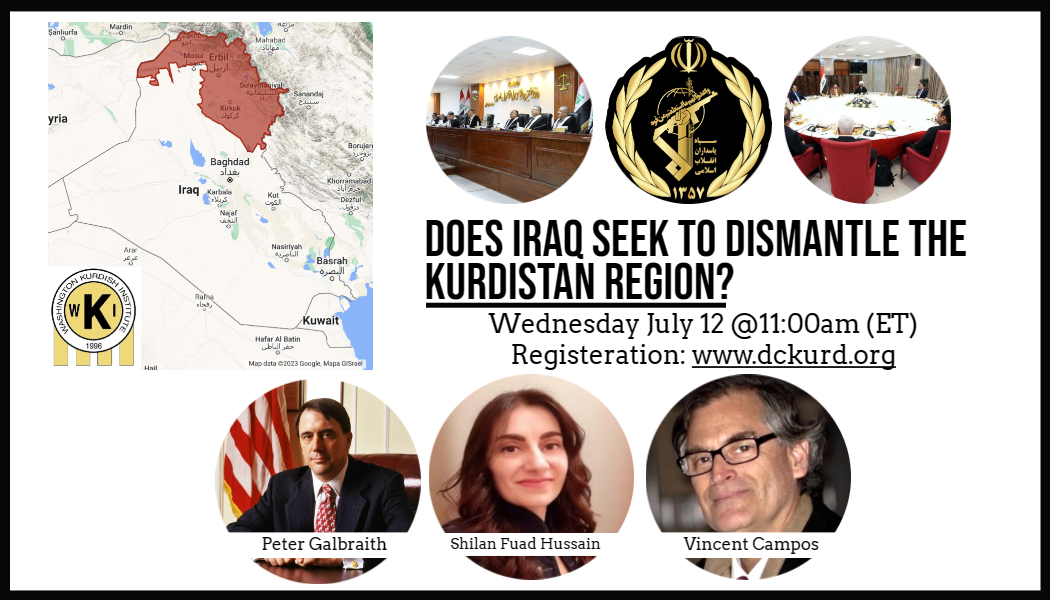Washington Kurdish Institute
Over a century of struggle, facing genocide, massacres, and chemical weapons attacks, the Kurds in Iraq have managed to gain semi-autonomy status in the “new Iraq” after the fall of the Ba’ath dictatorship in 2003. However, the Kurdistan Region continues to face existential threats from Baghdad despite constitutional rights. Baghdad has employed various tools against the Kurdistan Region, including maintaining old Iraqi laws that perpetuate Arabization policies, cutting Kurdistan’s federal budget, and depriving the Peshmerga forces of their status as a federal force. Additionally, since 2018, under Iranian pressure, the Iraqi Supreme Court has been utilized multiple times against the Kurdistan Region, further weakening its entity.
On March 23, the International Court of Arbitration ruled in favor of Iraq against Kurdistan’s independent oil exports. However, since then, Baghdad has failed to resume oil exports via Turkey, resulting in billions of dollars in damages to the economy. Simultaneously, it has passed a three-year budget law that unconstitutionally divides the Kurdistan Region.
This raises the question of whether Iraq seeks to dismantle the Kurdistan Region. In such circumstances, what options remain for the Kurds to defend their entity? Furthermore, what does the near future hold for the energy sector and oil exports in Kurdistan? Why does the existence of Kurdistan matter for the world? These and other important topics will be discussed by our distinguished speakers:



Wednesday, July 12, 2023, at 11:00am (ET)
About Speakers
Amb. Peter W. Galbraith is an author, commentator, policy advisor, and former diplomat. From 1993 to 1998, he served as the first US Ambassador to Croatia, where he negotiated and signed the 1995 Erdut Agreement that ended the Croatian War of Independence. From 2000 to 2001, Amb. Galbraith was the Director for Political, Constitutional and Electoral Affairs for the UN Mission in East Timor and a cabinet minister in East Timor’s first transitional government. In 2009, he was an Assistant Secretary General of the United Nations serving in Afghanistan. From 1979 to 1993, he was a staff member for the US Senate Committee on Foreign Relations, where he managed the State Department authorization legislation and wrote laws to protect the global environment, prevent nuclear proliferation and promote human rights. Galbraith has more than three decades of on-the-ground experience in Iraqi Kurdistan and Rojava, having documented Iraq’s destruction of Kurdish villages and use of chemical weapons for the Senate Foreign Relations Committee in the 1980s. He was in Iraqi Kurdistan during the 1991 uprising and was an advisor to the Iraqi Kurdish leaders during the negotiations on the Iraqi Constitution. Amb. Galbraith is the author of two books and numerous articles on Iraq, Syria and the Kurds including the best seller, The End of Iraq. He has been a regular visitor to Rojava, most recently reuniting young Yazidi women kidnapped by ISIS with their children.
Vincent Campos is a senior contributor at the Washington Kurdish Institute (WKI). In April 2022, Vincent Campos completed an impactful and extraordinary federal career as a Foreign Service Officer (FSO) with the U.S. Department of State and as a commissioned officer with the U.S. Coast Guard. His international assignments as an FSO included Iraq (four times), Chile, Bulgaria, Bahrain and Romania.
Domestically, he served in the Bureau of Political-Military Affairs, the Bureau of Intelligence and Research, and the Bureau of Energy Resources where his various duties included spokesperson, outreach officer, and Iraq analyst.
In 2005, his portfolio in the Political Section at U.S. Embassy Baghdad included support to the constitution development process, the 2005 elections, and Kurdish Affairs (Kurdistan Region, Kirkuk, and the disputed territories). He returned to Iraq in 2007 to support “Surge” operations, and again in 2013 for consecutive postings to support Counter-ISIS operations and programs for Iraqi civil society.
His USCG career spanned numerous shipboard and landside domestic assignments in Hawaii, California, Louisiana, Virginia, and Washington DC. Internationally, he served as the USCG Liaison Officer at US Embassy Lima, Peru.
Of note, he also served in a special assignment for the Office of the Vice President as Director of Operations that coordinated major interagency counterdrug activities throughout the entire Pacific Region.
His current focus areas include Iraqi politics, NATO strategy revisions due to Russia’s invasion of Ukraine, European energy security, Black Sea regional security, and Crisis Management.
Dr. Shilan Fuad Hussain is Marie Curie Postdoctoral Fellow in Middle-Eastern Studies, with a focus on Women & Cultural Analysis. Previously, she was a visiting fellow at the Washington Kurdish Institute (WKI). Dr. Hussain was a cultural analyst specializing in Middle Eastern and Kurdish Studies and a Researcher at the Geneva Centre for Security Policy. She is an interdisciplinary academic and focuses on social and political contexts in cultural production and intellectual activity from gender and anthropological perspectives. Her current work sits at the intersection of sociology and literary studies and its symbiotic relevance to modern society.

